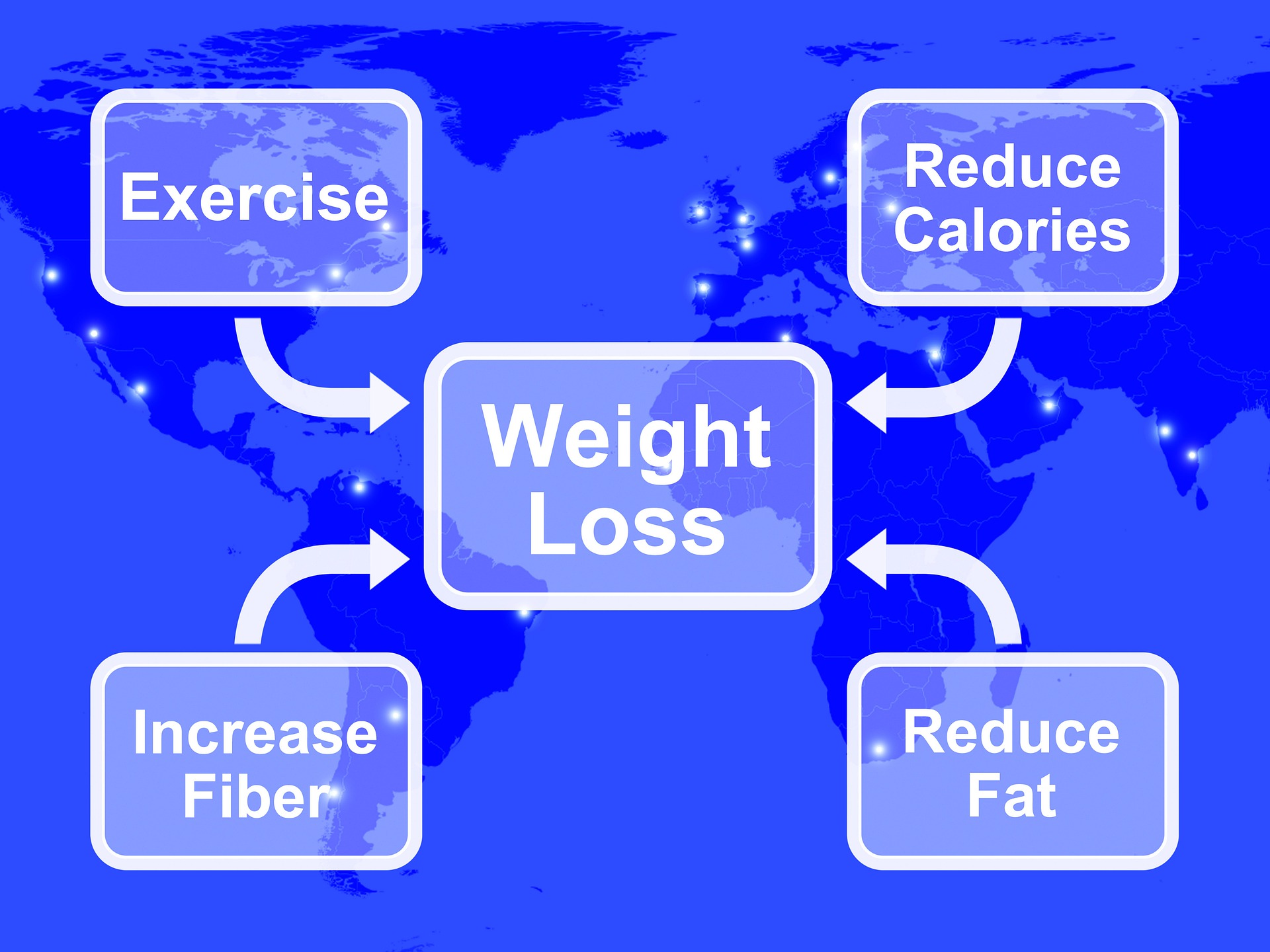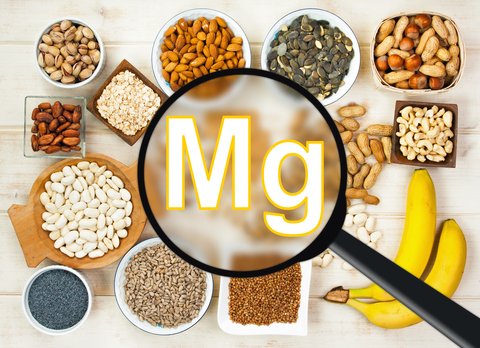All of you know Magnesium is an essential mineral that your body requires to stay healthy. Magnesium is among the five crucial electrolytes and is included in the cells of all biological organisms. Inside a functioning body, tissues utilize Magnesium to generate energy, synthesize molecules, and activate numerous biochemical processes. We can say Magnesium for Weight loss is practical for our healthy life.
Magnesium is vital for the activation and development of muscles in the human body. Magnesium and phosphate cooperate to efficiently distribute calcium and potassium, enabling the cardiovascular system to keep a regular beating. Magnesium also modulates sugar level control, renal purification systems, and synaptic transmitters bywinona.com

Why can you Use Magnesium for Weight Loss?
Magnesium, such as Vitamin b, is an essential energy nutrient that continues to work in your body to stimulate enzymes to help with proper digestion, assimilation, and consumption. You could indeed create unneeded feelings of hunger, low blood sugar, depression, and a solid desire to binge eat unless you don’t have enough efficient nutrition, seeking to make weight reduction extremely difficult. Magnesium also assists insulin’s capacity to transfer glucose from the bloodstream for energy. While Magnesium is in low supply for that system, glucose tolerance rates increase, carbohydrates are stored as body fat, and the amounts of insulin increase the risks for obesity.
What is the Recommended Intake of Magnesium in your Diet?
Magnesium is associated with several processes within the body that you need to absorb enormous quantities of it every day. Nevertheless, various individuals contain different levels of Magnesium. It’s because some people are lacking in Magnesium more often than others. Furthermore, many persons may take supplements that interact with Magnesium consumption. Vitamin D and Magnesium are two examples of substances that either boost or impede Magnesium activity. Hence help ensure to ‘Consult a Nutritionist’ and see whether you’re insufficient in Magnesium and get the appropriate Supplement containing and quantity for you.
Magnesium Could Help You Get More Energy to Cells After Your Workout:
You’ll want electrolytes to strengthen and recharge your bodies whenever your weight-loss process involves physical activation, which takes a lot of sweat and stamina. Magnesium is among the body’s five primary ions (calcium, sodium, chloride, potassium, and phosphate). Magnesium is a vital co-factor in synthesizing ATP, the biochemical which transmits energy between many organisms. Magnesium is more than just a cellular “storage,” transferring calories from meals and synchronizing metabolic reactions with ATP. This mechanism uses Magnesium for Weight Loss through resistance exercise, ultimately fat burning.

Magnesium May Support Stress Reduction and Quality Sleep:
Magnesium has been reported in research to decrease fear and stress, as well as promote relaxation. Cortisol, a stress hormone that also helps the muscles retain excess body fat, has indeed been related to anxiety and poor sleep by experts. As per a 2018 study, consuming Magnesium may benefit perceived panic disorders, including excessive stress levels. More significant research may be needed to determine the efficiency of Magnesium for Weight Loss, as per the report.
Magnesium Is Necessary for Muscle Contraction:
Most dietitians and fitness professionals suggest developing muscle mass to lose some weight. This approach typically involves both entire-body workout and strength training. Magnesium is essential for muscle flexion and extension throughout the activity. Mg functions as a calcium inhibitor in the organism, enabling relax the muscles.
Calcium induces a movement by attaching to the protein molecules troponin C and myosin. Magnesium maintains stability by combining with that many molecules to generate relaxation. While without stress relief might lead to contractions, trembling, soreness, or cramps when you may not have enough Magnesium in your body. Magnesium can improve muscle building and minimize inflammation after a workout if used to lose weight.
Magnesium Could Help You Perform Better in Sports:
Magnesium may significantly improve overall athletic performance in addition to its primary function in muscle function. Furthermore, research has shown that the body requires up to 25% extra magnesium throughout the workout than if it is at relaxation. Magnesium, for instance, contributes to the elimination of lactic acid accumulation in muscles throughout the exercise. It may improve the performance of activities and reduce weight by minimizing excessive acid levels, creating discomfort and muscle tiredness.
Magnesium carries lactic acid and blood sugar into the system for energy throughout the workout and boosts oxygen flow to muscle development. Experienced basketball players taking a regular supplement containing 200 milligrams increased their reaching capabilities and muscle activity, as published in the Journal of Sports Sciences. According to the other research reported in Cardiovascular Pharmacological treatments, endurance athletes who used magnesium supplements for four weeks did much better in bicycling, swimming, and long-running. Such players also had lower expression of insulin sensitivity and the reproductive hormone cortisol. Whether you’re searching for a simple strategy to maximize the performance of your activity, using Magnesium for Weight Loss might be the solution.

Magnesium Can Aid in the Regulation of a Healthy Heartbeat:
Fat loss and daily exercise both need the body’s capacity to keep the heart rate healthy. Magnesium is necessary for the activation and relaxation of the heart since it is a muscle. The body’s natural ions play a significant role in heartbeats and blood volume (Magnesium, calcium, sodium, chloride, potassium, and phosphate). Calcium interacts with proteins and induces the cardiac contraction of the muscle whenever it enters an interface with cardiac muscle tissue.
Magnesium assists in the regulation of stability by attaching to proteins and calming the heart muscle. Magnesium helps maintain the sodium-potassium cycle in the organism, which modulates neuromuscular responses. Obtaining appropriate Magnesium in your system can help you minimize atrial arrhythmias, beats, and contractions when doing hard strength workouts. Atherosclerosis, a stubborn accumulation of plaque and fat on the inner walls of arteries, can be reduced or even eliminate muscular contraction and relaxation.
Conclusion
The element magnesium is required for your body to work. Magnesium supplementation has been related to a lower risk of cardiovascular disease, type 2 diabetes, and other diseases.
Magnesium can be present in nuts, green vegetables, lentils, and seeds. When people don’t obtain enough of this vital mineral from meals only, consuming a supplement can enable you to reach your standard requirements. At doses below 300 mg each day, adverse effects are unlikely. You can purchase Magnesium tablets in supermarkets as well as on the internet.










![Is Tokyo Ghoul on Netflix? [How to Watch Online]](https://avctv.com/wp-content/uploads/2022/08/AAAABct1DaUzhEt4JeJFeDrmaE_4CGAu39fBN6poMx10hAlWlMRjkkAw84hjmuujWTy2wFC7_Pjnujec-_PqT1GCnnMFMJ15S04baJn1b0WvvbG6hrSNb31_GS4--120x86.jpg)





